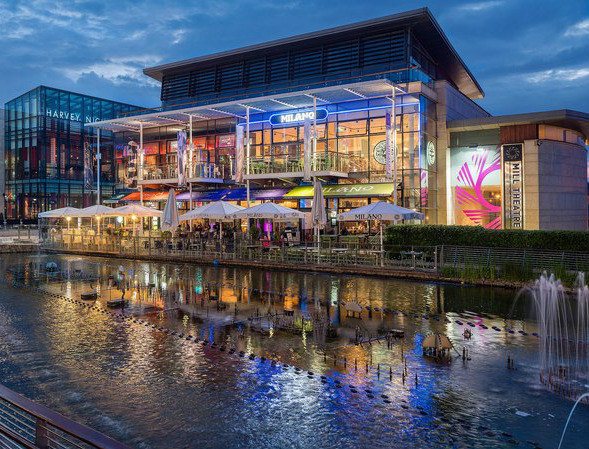Hammerson decided to abandon the €3.9 bn takeover of its smaller UK peer Intu almost wholly due to ‘shareholder pressure’, according to Hemant Kotak, managing director and head of Green Street Advisors’ UK and Swiss coverage.
‘If major shareholders hadn’t spoken out against the deal, I think they would be driving ahead as planned,’ said Kotak, ‘regardless of the weakening retail environment in the UK.’
Earlier this week, Dutch pension fund APG Asset Management, which holds a 7% stake in Hammerson, warned that it would vote against Hammerson's planned Intu acquisition at its upcoming shareholder meeting.
Kotak added: ‘Intu does have a pretty high-quality portfolio in its own right, but there are challenges to that portfolio. One of the fundamental issues is that some of the Intu assets are oversized for what their catchment areas can support.
‘What that means is a lack of competitive tension, and ultimately, rental growth suffers. So, it would be difficult even for Hammerson to drive rents much further if they acquired those centres. Occupancy cost ratios in the UK are already at elevated levels.’
Despite stepping back from the deal, Kotak noted that the Hammerson board were unlikely to ‘emerge unscathed from the saga’.
‘The question is, why did Hammerson not realise in the first place that their strategy wasn’t without undue risk, and that the upside potential was quite limited?’ he said.
‘In the statement on withdrawing support, they talk about the options that they’re reviewing. I think Hammerson-initiated M&A is off the agenda – we’ll have to see if Hammerson is attractive to anyone else, but it seems unlikely at the moment given the reaction of the equity markets.
‘Hammerson needs to seriously consider how they position their business. They’ve pursued quite an offensive approach recently, but given current market conditions, they should probably have a more defensive strategy.’
Disposals likely
Irish analysts Goodbody suggested that Hammerson will now pursue plans to create ‘best in-class destination retail’ with ‘renewed vigour’.
‘The disposals programme looks to continue with the aim of optimising portfolio mix, most likely continuing to reducing exposure to weaker UK assets,’ Goodbody said in a statement. ‘Most significantly, and encouragingly, we note the comment to invest further in higher growth markets such as Premium Outlets and Ireland.’
Weakening outlook
Analyst Michael Hewson of CMC Markets said that Hammerson should display caution going forward.
‘It can’t have escaped the notice of bigger institutional shareholders that the risks to UK retail property are starting to become much more of a concern,’ he noted in an analysis piece for CMC Markets.
‘With retail profit warnings at seven-year highs any deal is likely to be extremely high risk,’ Hewson said of the now unlikely Intu deal. ‘Why double up on retail property when stores are closing and rental income is under threat? It would be akin to doubling up on a losing position, and as we know from historical precedent that rarely prompts a positive outcome.’
Store closures
‘’With little positive news across the retail since the start of 2018 including multiple CVAs from New Look, Select and Carpetright and major players Toys R Us and Maplin tumbling into administration, Hammerson is unwilling to expose itself to the potential of retailers closing stores in Intu’s shopping centres, at the price it settled on five months ago,’ said Sofie Willmott, senior retail analyst at GlobalData.
However, Willmott said that the ‘right’ kinds of shopping centres still looked like defensive assets for the group moving forward.
‘Although many retailers have plans to trim down their store portfolio this year in response to lacklustre physical sales, rising operating costs and spend shifting online, it is unlikely that shopping centre stores will be the ones they choose to close given the destination appeal of these locations,’ she said.
‘Retailers such as Zara, H&M and River Island are prioritising their shopping centre locations and upsizing their stores in supermalls, adding to the lure of these locations which offer an all-round experience for consumers with increasingly high expectations.’


































